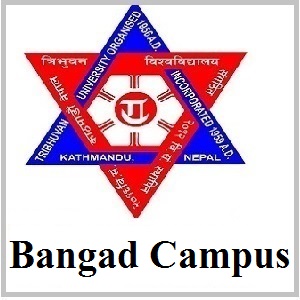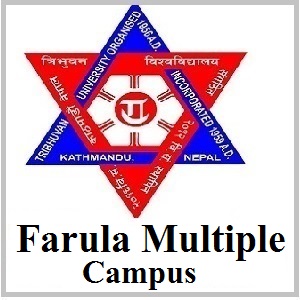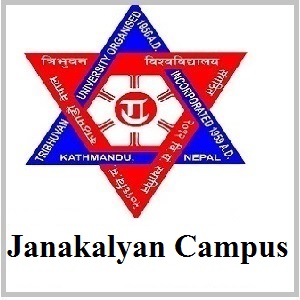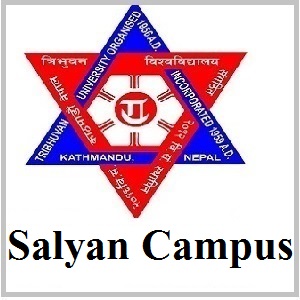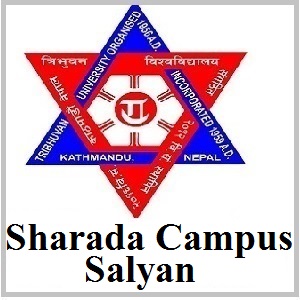Overview
Shiva Jan Campus, established in 2064 BS (2008 AD), is a non-profit, community-based academic institution located in Sitalpati, Sharada Municipality-1, Salyan, Nepal. Affiliated with Tribhuvan University and approved by the University Grants Commission (UGC) of Nepal, the campus has become a center for higher learning in Karnali Province.
It offers academic degree programs (BBS, BEd, and MEd) that cater to the educational needs of students from rural and semi-urban areas. With its strategic location 500 km northwest of Kathmandu, the institution plays a significant role in expanding access to higher education across remote districts.
Quick Highlights
-
Year Established: 2008 AD (2064 BS)
-
Type: Community-based, Non-profit
-
Location: Sitalpati, Sharada Municipality-1, Salyan, Karnali Province
-
Affiliation: Tribhuvan University
-
Approval: University Grants Commission (UGC) Nepal
-
Academic Programs: BBS, B.Ed., M.Ed.
-
Total Enrolled Students: 710
-
Teaching Staff: 16
-
Total Staff: 22 (Teaching and Non-teaching)
-
Library Collection: Approx. 4,500 books
-
ICT-equipped Classrooms: 4
-
Laboratories: Science and Computer
-
Hostel Facility: Yes
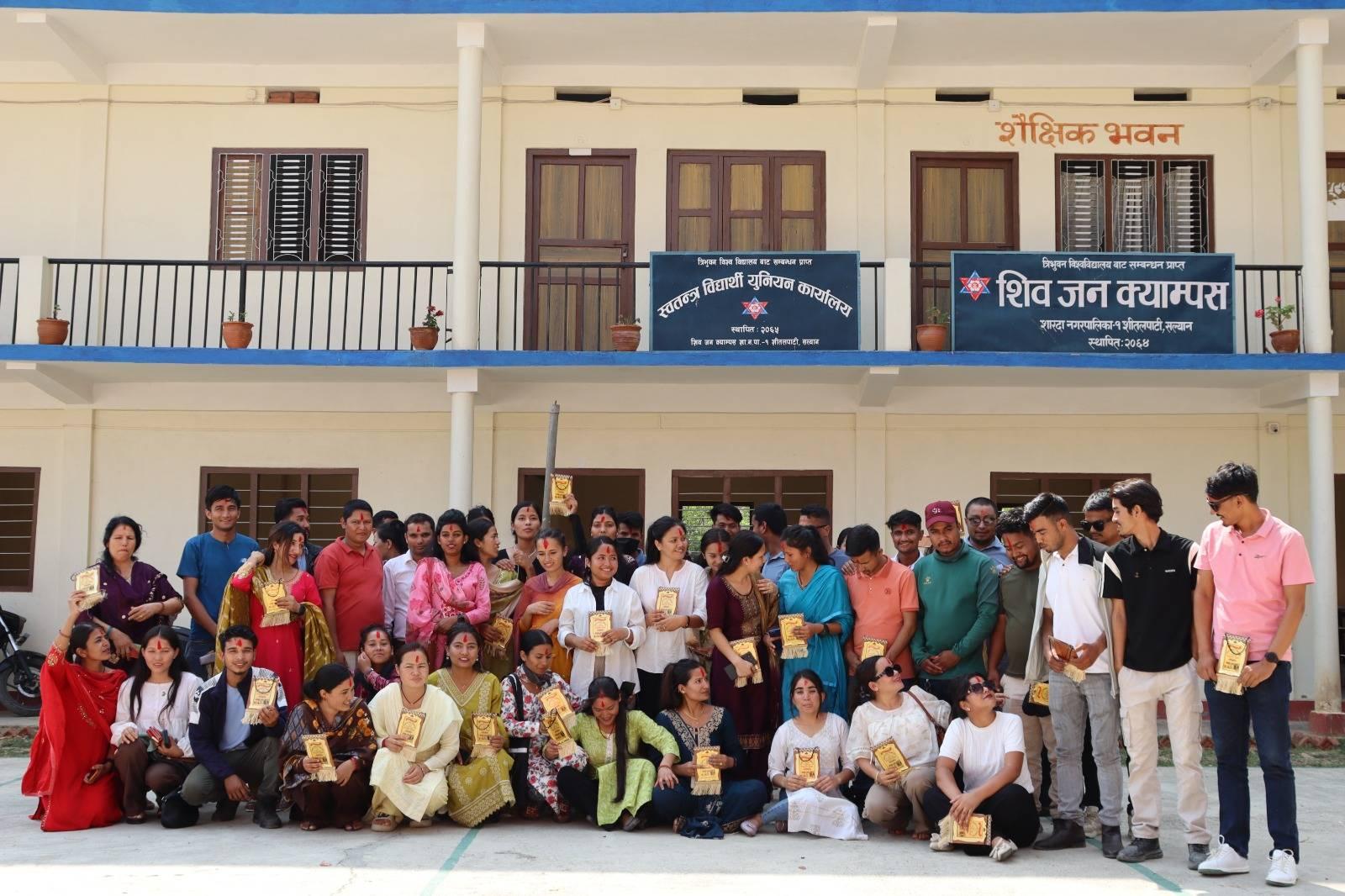
Academic Programs Offered
Shiva Jan Campus provides bachelor's and master's degree programs under two faculties: Education and Management. The following programs are currently offered:
-
Bachelor in Business Studies (BBS) under the Faculty of Management (introduced in 2062 BS)
-
Bachelor in Education (B.Ed.) under the Faculty of Education (introduced in 2063 BS)
-
Master’s in Education (M.Ed.) with specialization in English and Health Education (introduced in 2075 BS)
These programs are offered under the academic framework of Tribhuvan University. The curriculum emphasizes both theoretical knowledge and applied skills relevant to education and business sectors. All programs are active and open for enrollment.
Admission Process
Admissions are conducted annually based on Tribhuvan University’s academic calendar. The campus follows inclusive admission practices to ensure access for students from all backgrounds.
Applicants must meet the eligibility criteria as set by TU. Admissions are processed through an open application process, and merit-based scholarships are available to economically disadvantaged and marginalized students.
Teaching Faculty and Learning Methodology
Shiva Jan Campus employs 16 teaching faculty members, distributed across two departments:
-
Education Department: 13 teachers (12 male, 1 female)
-
Management Department: 3 male teachers
Out of the 16, eleven are male, two are female, and the remaining three are classified under other gender identities. The teaching team comprises permanent, contract-based, and part-time educators, who contribute to curriculum delivery, academic supervision, and student guidance.
The teaching methodology combines traditional classroom learning with the use of multimedia tools in ICT-enabled classrooms. Evaluation is based on internal assessments and TU’s standardized examinations.
Infrastructure and Learning Facilities
The campus infrastructure supports a functional academic environment. Key physical and learning resources include:
-
Buildings: 4 (3 permanent, 1 temporary)
-
Total Classrooms: 13
-
Toilets: 6 (male and female), no facility for persons with disabilities
-
ICT-Enabled Classrooms: 4
-
Laboratories: Science and Computer Labs
-
Computer Lab: Equipped with 10 internet-enabled computers
-
Library: Approx. 4,500+ books with provision for journals
-
Furniture Inventory: 176 benches/desks, 44 tables, 70 chairs, 6 cupboards
-
Multimedia Equipment: 2 projectors, 3 printers, 1 photocopier
-
Hostel Facility: Available on campus
Student Life and Campus Experience
The student population reflects diversity in gender and ethnic composition:
-
Total Students: 710
-
Management: 191
-
Education: 519
-
Ethnic Representation:
-
Management Faculty: Chhetri (118), Brahman (21), Janajati (20), Dalit (15), Others (16)
-
Education Faculty: Chhetri (289), Janajati (100), Brahman (66), Dalit (51), Others (12)
The campus promotes an inclusive environment that encourages participation from underrepresented communities.
Extracurricular Activities (ECA)
The institution encourages co-curricular and extracurricular involvement through:
-
Sports and physical education programs
-
Cultural and social awareness events
-
Workshops, training, and student-led programs
-
Interaction programs and career development sessions
Such activities are organized in coordination with faculty and local stakeholders to enhance holistic student development.
Scholarships and Financial Support
Shiva Jan Campus receives financial support from:
-
Tribhuvan University grants
-
University Grants Commission (UGC): Regular, performance-based, and development grants
-
Local municipalities and provincial bodies
Scholarships are allocated based on academic merit and financial need. A dedicated mechanism ensures transparency in the disbursement of scholarships.
Achievements and Institutional Milestones
-
Established in 2064 BS with affiliation from Tribhuvan University
-
Successfully introduced bachelor’s programs in Management and Education
-
Master’s in Education initiated in 2075 BS
-
Consistent growth in enrollment over the years
-
Contribution to regional education through accessible programs
-
Participation in local and provincial academic networks
Why Choose This Institution?
-
TU-affiliated degree programs with local relevance
-
Service-oriented, non-profit educational philosophy
-
Affordable education with scholarship access
-
Located in an underserved district, contributing to educational equity
-
ICT-enabled teaching and modern academic resources
-
Supportive faculty and an inclusive campus environment
Conclusion
Shiva Jan Campus has established itself as a reputable academic institution in Karnali Province, offering degree programs that meet national university standards. With support from TU, UGC, and local communities, the institution continues to strengthen access to education in rural Nepal.
Contact Shiva Jan Campus's administrative office for detailed information on the course, admissions, location, fees, scholarships, facilities, counseling, or eligibility.



